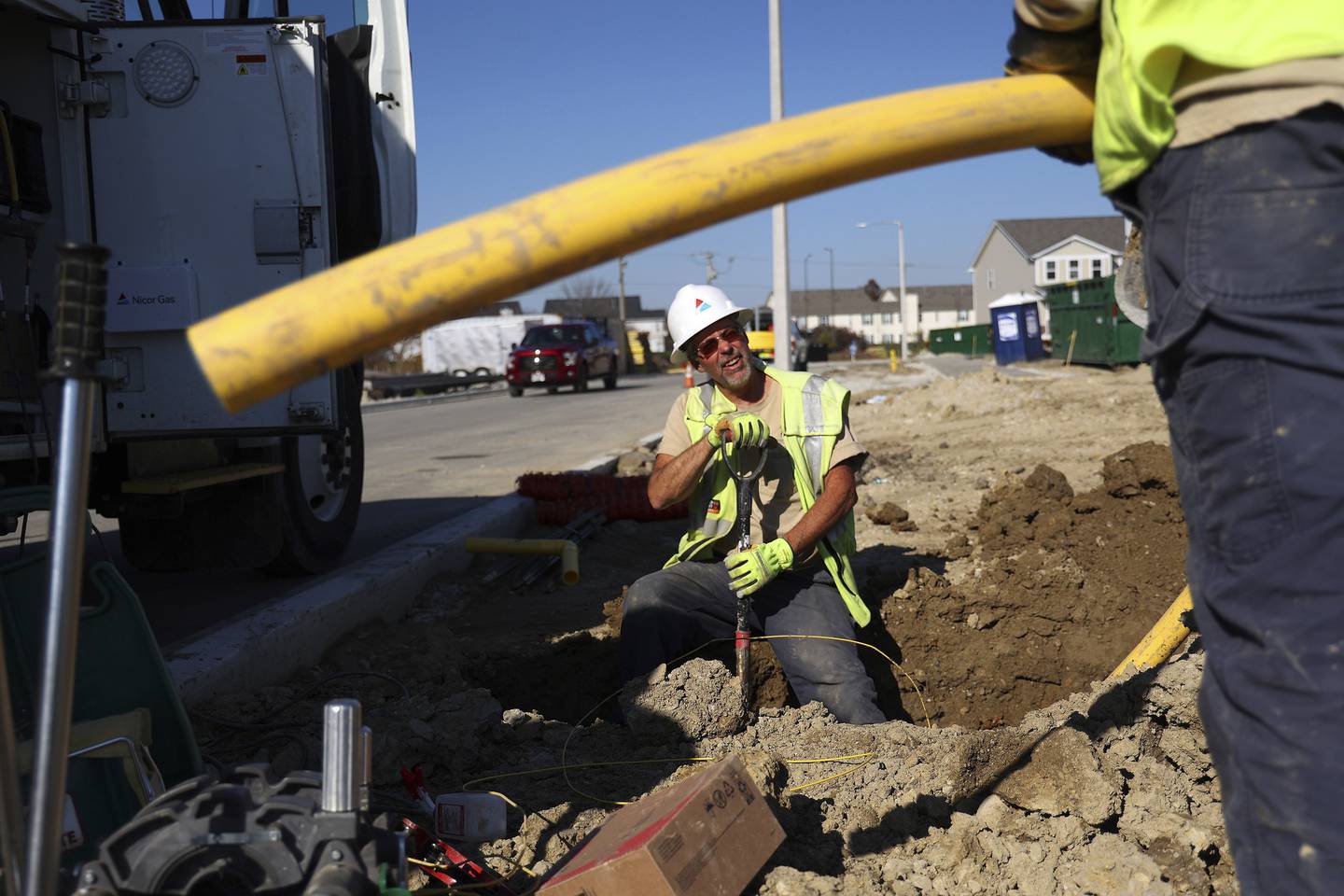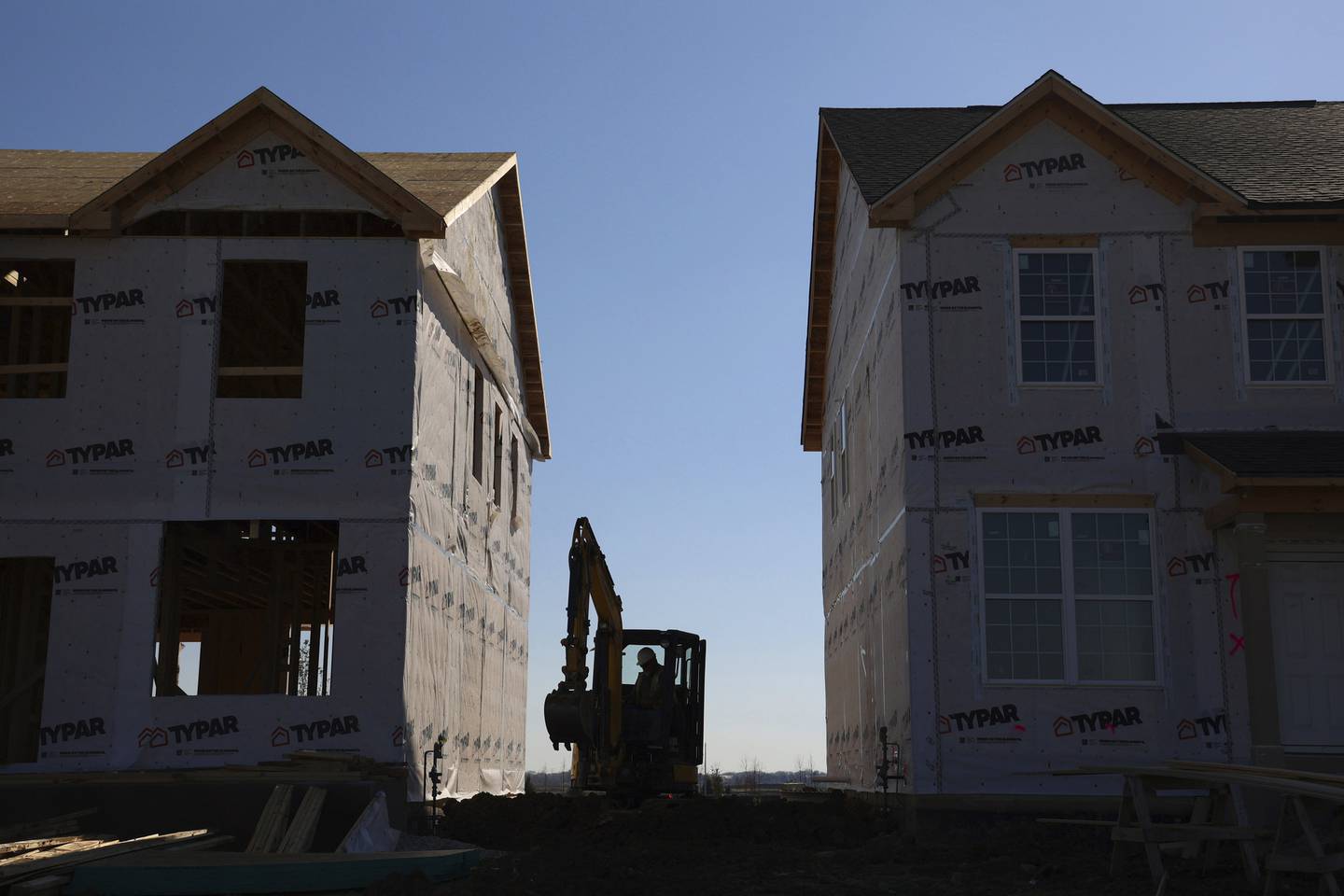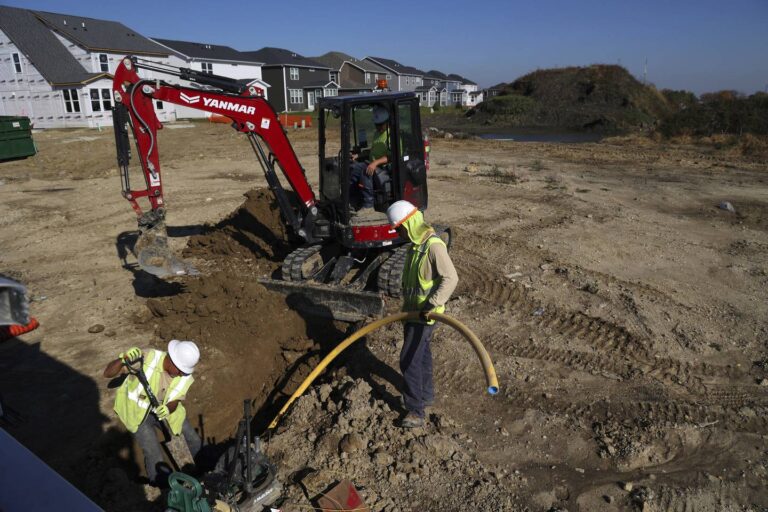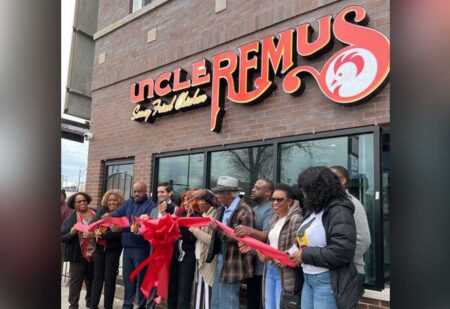It may cost hundreds of dollars more to stay warm this winter in Chicago and the suburbs, with rising natural gas prices and ongoing ratepayer-funded repair work projected to raise bills by as much as 30% over last year.
Residential customers of Peoples Gas, North Shore Gas and Nicor Gas will all likely feel the pricing heat as temperatures drop, adding to the broader inflationary pressures weighing on many households.
Advertisement
“It’s looking like it’s going to be a really tough winter for consumers,” said David Kolata, executive director of the Citizens Utility Board, a nonprofit Illinois watchdog group. “Gas prices are significantly higher than they were just a few years ago.”
Natural gas prices have skyrocketed over the last two years, driven by supply disruption, an extreme cold snap in 2021 and the Russian invasion of Ukraine in February, according to industry analysts. For many Chicago-area customers, added delivery costs baked into the bills for infrastructure work have exacerbated the price increases for natural gas, Kolata said.
Advertisement
Peoples Gas, which has about 880,000 customers in Chicago, and North Shore Gas, which has about 164,000 customers in the northern suburbs, project typical residential customer bills this winter to increase by $60 per month over last winter, when natural gas prices spiked to a 13-year high.
That means Peoples customers can expect to pay an average of about $260 per month and North Shore customers more than $240 per month this winter. Both Peoples and North Shore are owned by Milwaukee-based WEC Energy Group.
Naperville-based Nicor Gas, which is owned by Atlanta-based Southern Co., has 2.3 million customers in suburban Chicago and across northern Illinois. The utility projects residential bills this winter to go up about $34 per month over last winter, with the typical customer paying an average of about $187 per month from November through March.
Last month, the U.S. Energy Information Administration released its Winter Fuels Outlook, which projected U.S. households that heat primarily with natural gas will spend an average of 28.5% more this winter than last. The Midwest will see the largest projected increase, with natural gas customers paying nearly 33% more to heat their homes this winter.
Residential gas bills include both supply and distribution charges. While utilities don’t make any money on the supply end — the natural gas itself — they are responsible for procuring it as efficiently as possible, to hold down the cost paid by customers.
The price of natural gas for Peoples Gas customers is about 71 cents per therm in November, down slightly from last year, but up 155% from November 2020, when it was about 23 cents per therm, according to the Illinois Commerce Commission, which regulates the gas utilities.
At co-owned North Shore Gas, the price per therm in November is about 72 cents, up 87% from November 2020.
The biggest natural gas cost increase is for Nicor customers, who are paying $1.14 per therm this month, up 307% from November 2020. The supply costs have risen so dramatically that they now account for more than 70% of the typical residential bill, up from about 50% in previous years, according to Nicor spokeswoman Jennifer Golz.
Advertisement
“While we cannot predict the future with current market conditions and inflation uncertainties, we do anticipate our monthly gas supply cost will moderate as the wholesale market moderates,” Golz said in an email Wednesday.
While the fluctuating cost of natural gas is passed through directly to customers, the cost of distributing it to homes is determined by the individual utility.
In November 2021, the ICC granted Nicor a $240 million rate increase to modernize its distribution, transmission and storage infrastructure. The approved increase adds about $3.70 per month to the typical residential customer bill, Golz said.
Meanwhile, Peoples Gas customers are paying about $15 per month to fund the utility’s massive and long-running pipeline replacement program, a line item on the bill that is about $2 higher than last year.
“It’s been creeping up,” Kolata said. “It’s about $15 a month now, and that’s a significant portion of the bill. We’re at the point now where the fixed charges for Peoples Gas customers, they’re in the $45 to $50 range, and that’s before you use any gas whatsoever.”

Launched in 2011, the System Modernization Program to replace 2,000 miles of aging iron pipes below Chicago streets was plagued from the outset by delays and budget overruns. A decade later, the pipeline replacement program is a third complete, and Peoples Gas says it will take until 2040 and cost about $8 billion to finish.
Advertisement
The program was originally projected to cost $2.6 billion and take 20 years to complete.
“Despite unprecedented challenges over the past several years, our skilled construction crews continue to make steady progress replacing the rapidly corroding iron pipes in Chicago that date back as far as the 1800s,” Brendan Conway, a spokesman for Peoples and North Shore Gas, said in an email.
A 2019 pipeline engineering study commissioned by Peoples Gas and the Illinois Commerce Commission found that 83% of the remaining iron pipes have an average life span of less than 15 years.
Conway said construction “remains on track” for completion by the end of 2040, while the cost for the full 30-year pipeline program is still projected at the upwardly revised $8 billion budget. The program could come to a screeching halt next year, however, depending on which way the political winds are blowing in Springfield.
Peoples Gas spends about $300 million annually on the program but will need lawmakers to sign off on extending ratepayer funding beyond 2023. The utility got legislative approval in 2013 to pass costs along to customers for 10 years.
The Citizens Utility Board is advocating legislators put an end to the built-in pipeline replacement surcharge next year, putting Peoples’ spending under more regulatory scrutiny and forcing the utility to get infrastructure improvements approved through traditional rate cases.
Advertisement
Conway said Peoples Gas doesn’t know what will happen with the legislation in 2023, but the utility can’t leave the aging gas pipeline system as is.

“The work to modernize Chicago’s system must be done,” Conway said. “As for what mechanism is used to pay for the necessary work, we will partner with policymakers and all stakeholders to determine what exactly that looks like.”
Over the longer term, Kolata would like to see the pipeline replacement scaled back, taking a “triage” approach to repair only what’s necessary as residential heating more broadly transitions from gas to cleaner energy alternatives such as electric heat pumps, which received a boost from recent federal climate initiatives.
The Inflation Reduction Act, signed into law by President Joe Biden in August, includes $369 billion for climate and energy programs. Beginning in January, homeowners will be able to claim a tax credit of up to $2,000 for buying and installing an electric heat pump, which can benefit the climate and use less energy than a traditional gas furnace.
Kolata said the state will likely take up an energy bill in the next two or three years to accelerate the transition from gas to electric heat.
Rebuilding Chicago’s entire aging gas pipeline infrastructure, Kolata said, could be obsolete by the time it’s completed.
Advertisement
“We’re just creating all these stranded costs, that you end up paying for something far beyond when you’re actually using it, which is not what we want,” Kolata said. “I do think that over time, home heating is going to electrify.”
Meanwhile, the higher gas prices have put a burden on many consumers, with about a third of Chicagoans already paying late fees on their utility bills heading into the colder winter months, Kolata said.
The Low Income Home Energy Assistance Program can help keep the heat on for struggling households at or below twice the federal poverty level. Sens. Dick Durbin and Tammy Duckworth announced Thursday that low-income families in Illinois will be eligible for a share of $208 million in federal funding allocated to the state through the program this winter.
Consumers can apply for assistance at www.helpillinoisfamilies.com.






